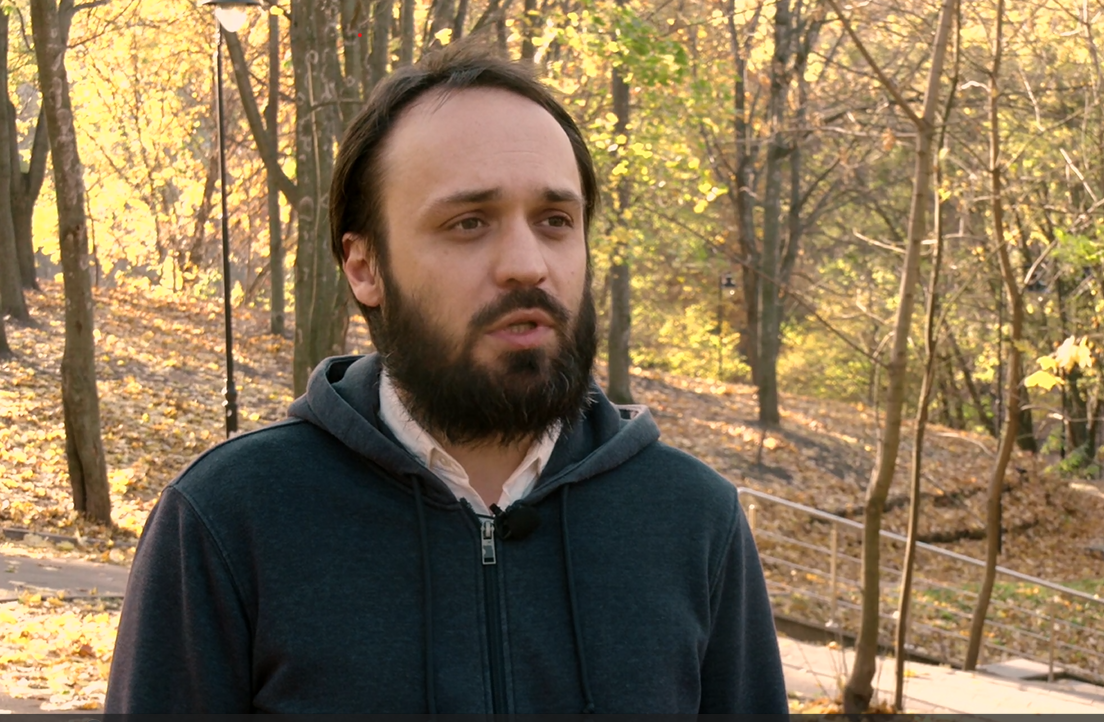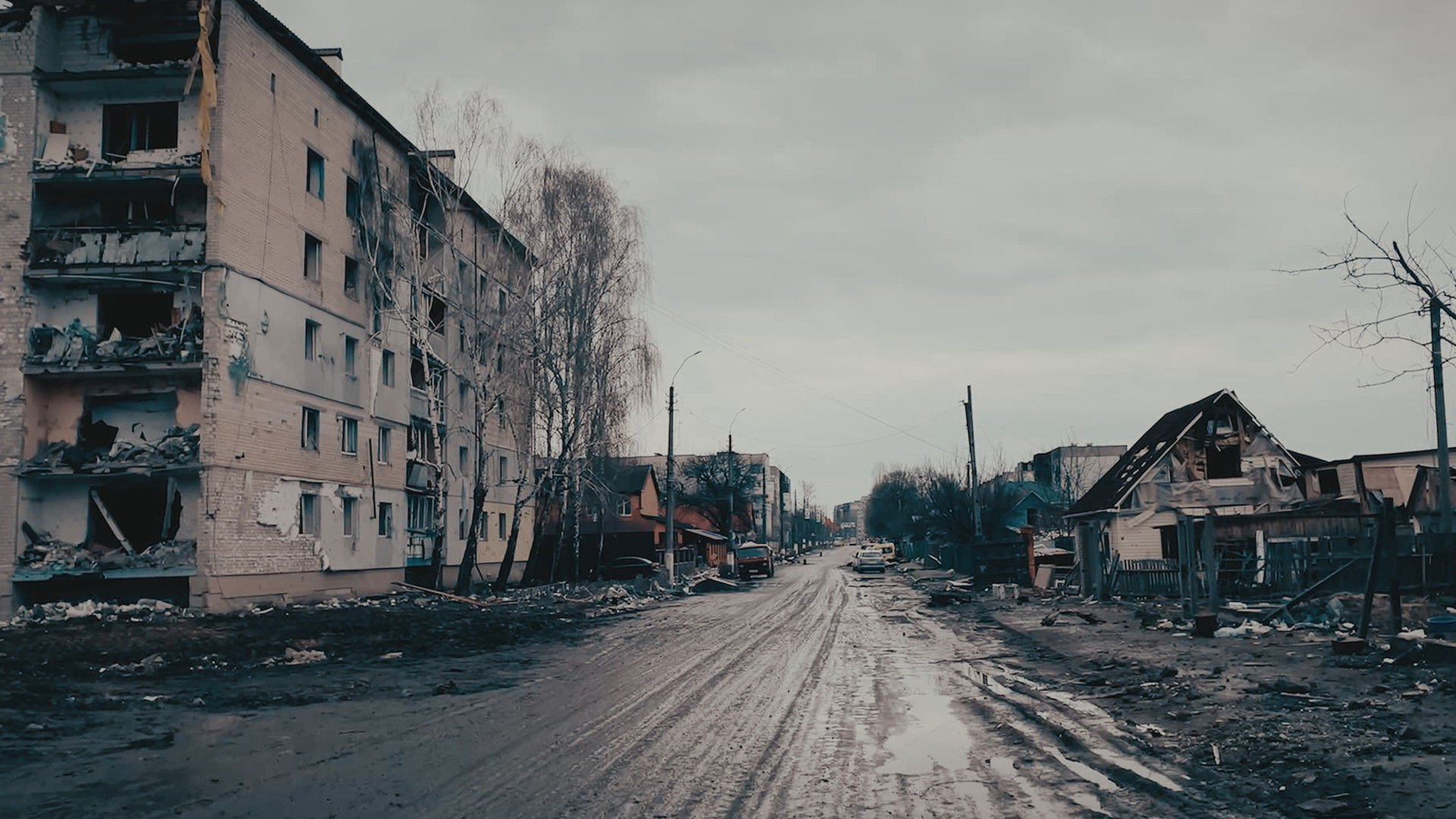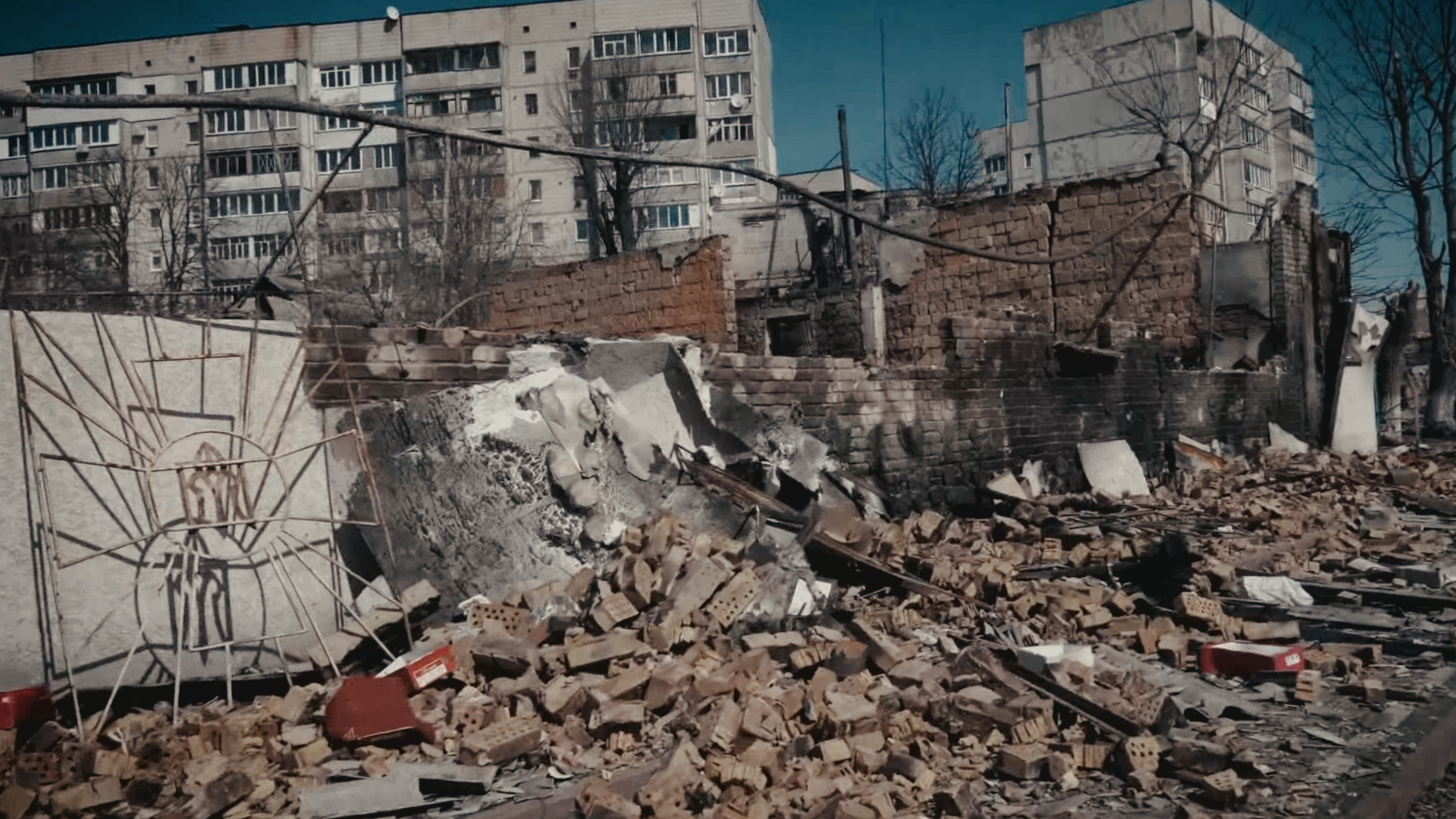‘The Russians killed people with bestial cruelty’
I met the war in Kyiv. I didn’t sleep in the morning, waiting for something to happen, but experiencing a full-scale invasion surprised me. When the explosions started in the morning, my friends and I, those with small children, decided to go to the outskirts of Kyiv. We thought that the Russians would terrorize us for several days with missiles, but no one believed that there would be such an invasion.
My girlfriend’s father has a dacha near Borodianka, and we decided this would be an excellent place to stay for a while. When we arrived in Borodianka, it became clear the next day that this was not some terrorist attack but a full-scale invasion. We could no longer buy food; we were virtually cut off from civilization because the Russians very quickly reached Borodianka. They began to bomb the city mercilessly.

We were caught between hard rock and stone. We did not have access to Kyiv or the other side — battles were already there. Moreover, the Russians bombed everything that moved and did not move: cars with civilians, houses...
In addition to the fact that the Russians were shelling towns and villages in the area, they began to loot and burn houses, and Russian snipers shot people who were trying to find food.
I don’t know if they did this on purpose. After all, there is no logic in the massive bombing of civilian targets. Moreover, even when the front line moved away from Borodianka, the Russians did not stop bombing. I admit that it was a kind of psychological operation. Because when the Russians came to Borodianka, the first thing they did was shoot grocery stores from tanks so that there would be no food. And this was the hardest thing to accept — the inability to find food.

Now, I am working with a psychologist, and he explains that we all have a collective trauma after the Holodomor. I remembered much of what my grandmother had told me about the Holodomor. My neighbors and I tried to collect “grains” and divided them by gram among us. I walked in circles, looking for food. I saw executions of civilians and destroyed houses. It was terrifying to look at all this. Once, I went to buy food and saw the square filled with people: they were standing in lines outside the shops. Despite the shelling and explosions, a massive crowd of 500-600 people stood as if they were working because the situation was utterly hopeless.
People were in such a state that it was no longer scary to come under fire: people got into their cars, stepped on the gas pedal, and drove literally through the battlefield.
At some point, we realized that we had no way out. We expected an adequate reaction from the international community. Since I was once the commander of the Red Cross of Ukraine’s rapid response unit, I knew precisely how the evacuation of civilians should occur because, at one time, I was the person who carried out such an evacuation. So we were waiting for some kind of organized evacuation, but this did not happen, and staying was no longer possible. So, one morning, we got into the car and drove off with a group of other cars without much hope of survival.

We drove through the battlefield — this was a separate story because, on the way, we saw executed civilians and military personnel. I saw how the Russians finished off the military. What shocked me most was when I saw how the defender of Ukraine was lying with his head cut off, his blood was still flowing, and a Russian was standing over him, with his foot on his body, looking as if he wanted to say: “look how cool I am... ”
Such situations have occurred many times. It was as if they were boasting that they were not just killing but doing it with furious, bestial cruelty.
They set fire to the corpses of warriors! For what? Unclear. They shot the crawling wounded. We saw this with our own eyes. Some of the Russians I saw were youngsters with machine guns shaking in their hands, while others seemed out of this world — entirely out of touch. They had no fear. There were explosions and shelling, but he stood there and didn’t care about anything other than showing how cool he was because he killed someone brutally.
I have been diagnosed with PTSD and am in therapy. Unfortunately, my condition leaves much to desire, so I advise anyone who finds themselves in a similar situation to deal with this issue immediately. I neglected my health, and now it is affecting me.
I can’t even dehumanize Russians because to be able to dehumanize someone, the person must be human. And dehumanizing something that is not “human” is strange. Therefore, my attitude towards them has changed from a state in which I dehumanized them to the point where I now do not consider them “human” at all. Now, I’m trying to concentrate more on the Ukrainians and helping us win. I don’t think about the Russians. I don’t know what’s in their heads, but it’s garbage. I know international humanitarian law. Everything the Russians do goes beyond the scope of war. In its essence, it is absolute genocide. I don’t consider Russians humans. I have no explanation other than that they are not human.





